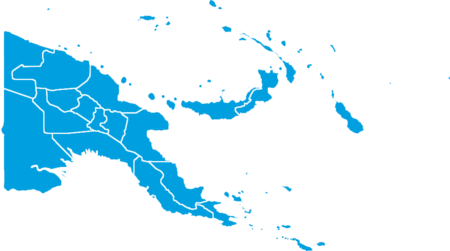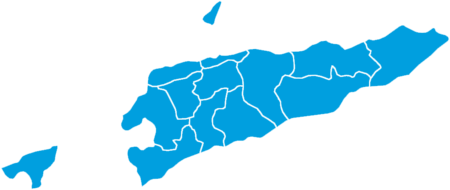Despite working in different countries, and having different focuses, our Water for Women projects are united in their aims of advancing gender equality and strengthening the local water, sanitation and hygiene sector.
Addressing gender inequality is critical to achieving our vision. Unless we’re approaching our work with a view to inclusion, we’ll never able to live in a world where everyone has access to safe water, sanitation and hygiene.
Similarly, we also have to look beyond direct service provision to strengthen the systems (the collection of people, organisations, institutions and resources) involved in keeping services functioning. To do this we work to strengthen the skills of governments, civil society and business, and offer our expertise to inform policy and practice, so that the benefits of water and sanitation keep flowing.
This work is part of the Water for Women Fund, which is funded by the Australian Government's Department of Foreign Affairs and Trade.
Papua New Guinea
Papua New Guinea
Timor-Leste
Timor-Leste
Papua New Guinea
Gender inequality remains a major development challenge in Papua New Guinea. And while progress on disability inclusion has been made, stigma and physical inaccessibility of infrastructure continue to preclude people with disabilities from accessing services.
The project aims to benefit more than 40,000 people living in the Wewak District of East Sepik Province by supporting improvements to government-led service delivery.
Taking an adaptive approach that will allow us to respond the changing context, the project is working towards four key outcomes:
- Water, sanitation and hygiene services in Wewak District are improved over time and are sustainable, gender-sensitive and socially inclusive.
- District-level systems are strengthened, with a sustained commitment to provide adequate resources for services.
- Women and people with disabilities are leaders in the sector, and have a greater voice in decision-making.
- Government and non-government agencies adopt and use of scalable, effective strategies for increasing inclusive, district-wide access to water, sanitation and hygiene uncovered in the course of the project.
To do this, we’re taking a gender mainstreaming approach, encouraging government to assess the different implications for women and men of any planned policy or program. We’re supporting women and people with disabilities to participate in decision-making forums associated with water, sanitation and hygiene services, as well as challenging deep-seated norms about gender and disability that see people marginalised.
Working with rural and urban service providers we’ll be promoting data-driven, district-wide planning and financing of equitable water, sanitation and hygiene services, while also aiming to improve collaboration between all the various parties involved in service delivery.
Timor-Leste
Despite progress made across recent years in increasing access to water and sanitation in Timor-Leste, not everyone has benefitted equally. Disparities in access to, and quality of, services, remain between rural and urban areas, between poor and rich, between women and men, and between people with disabilities and those without.
Working across Liquica and Manufahi municipalities, the project will directly benefit more than 11,500 people with access to government-led, equitable, sustainable, and nutrition-sensitive water, sanitation and hygiene services.
The project is working towards four outcomes:
- Gender equality and social inclusion is effectively integrated into national water, sanitation and hygiene systems.
- Women and men share roles and responsibilities for decision-making both at the household and community levels, with a particular emphasis on water, sanitation and hygiene.
- Municipal governments use gender transformative approaches to deliver nutrition sensitive, inclusive and sustainable water, sanitation and hygiene services.
- Nationwide knowledge management and learning related to water, sanitation and hygiene is strengthened, including improved exchange between related sectors – health being one example.
To achieve this, we’re building on and extending our previous work in Timor-Leste. We’re continuing our work with national and municipal governments to strengthen the water, sanitation and hygiene sector and improve coordination across related sectors (for example nutrition), all while ensuring gender and social inclusion approaches are mainstreamed.
At the local level, we’re continuing to support communities with access to, and maintenance of, inclusive water, sanitation and hygiene services, including to continue to use our Community Dialogue manual to create more equal power dynamics between men and women. We’ll also continue to roll-out our Community Scorecard (CSC) process, enabling people to provide feedback to government on the quality of services they’re receiving.
Across all these activities we’ll be focused on documenting and sharing lessons and emerging models of good practice, so that others can adopt them.

